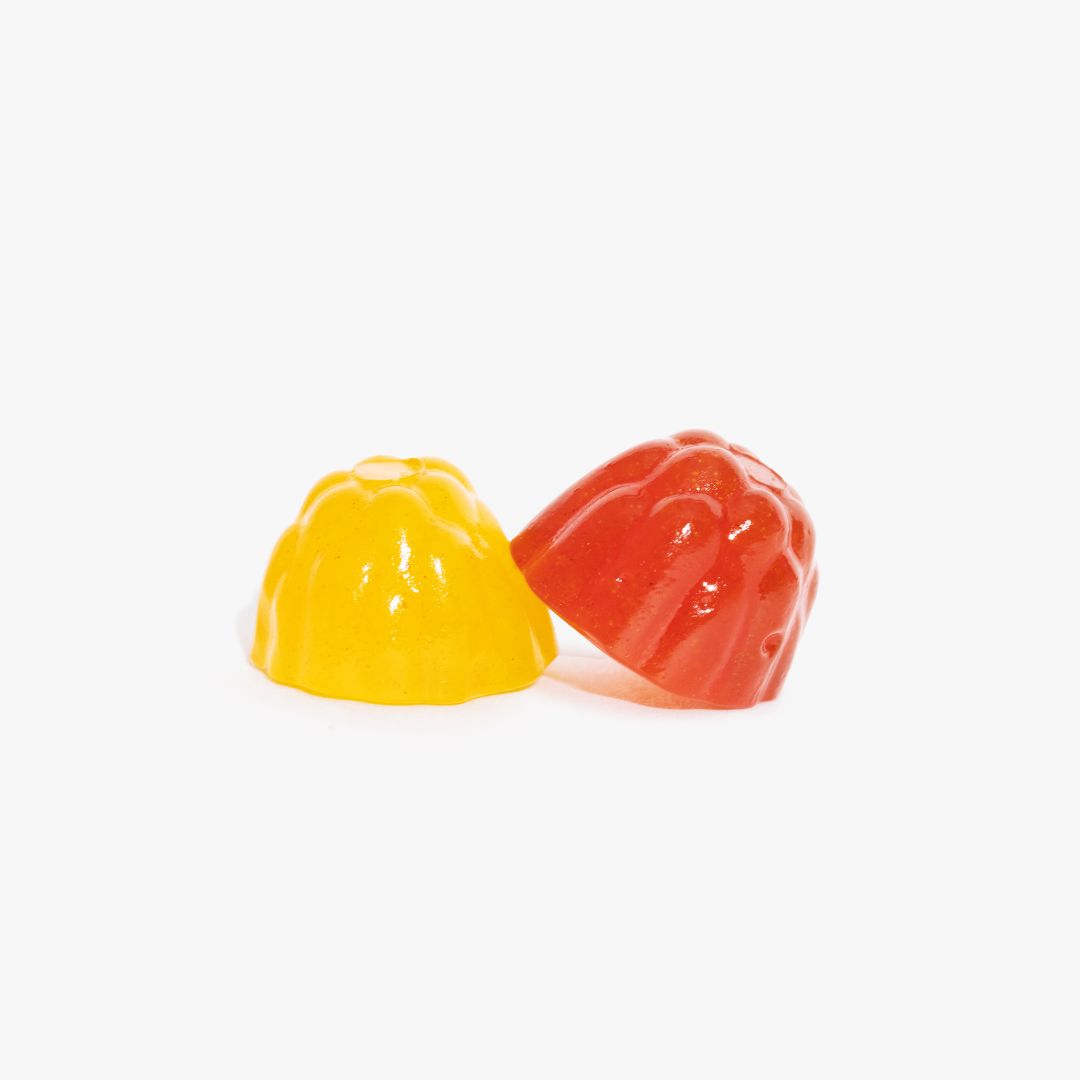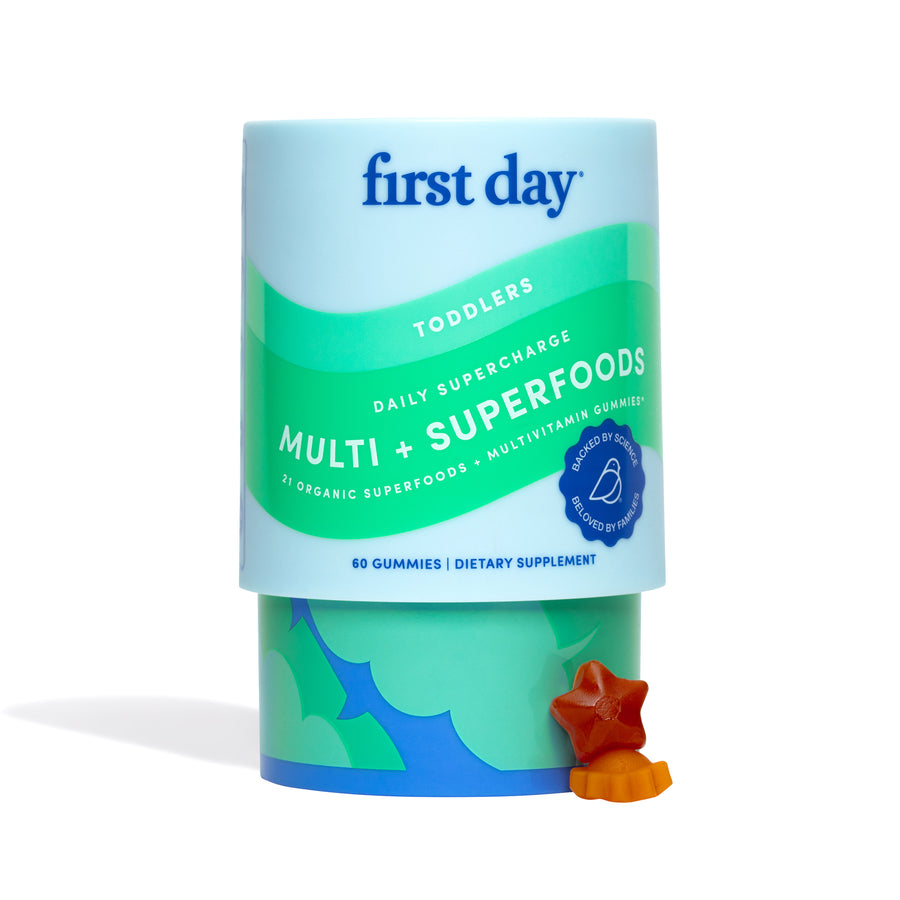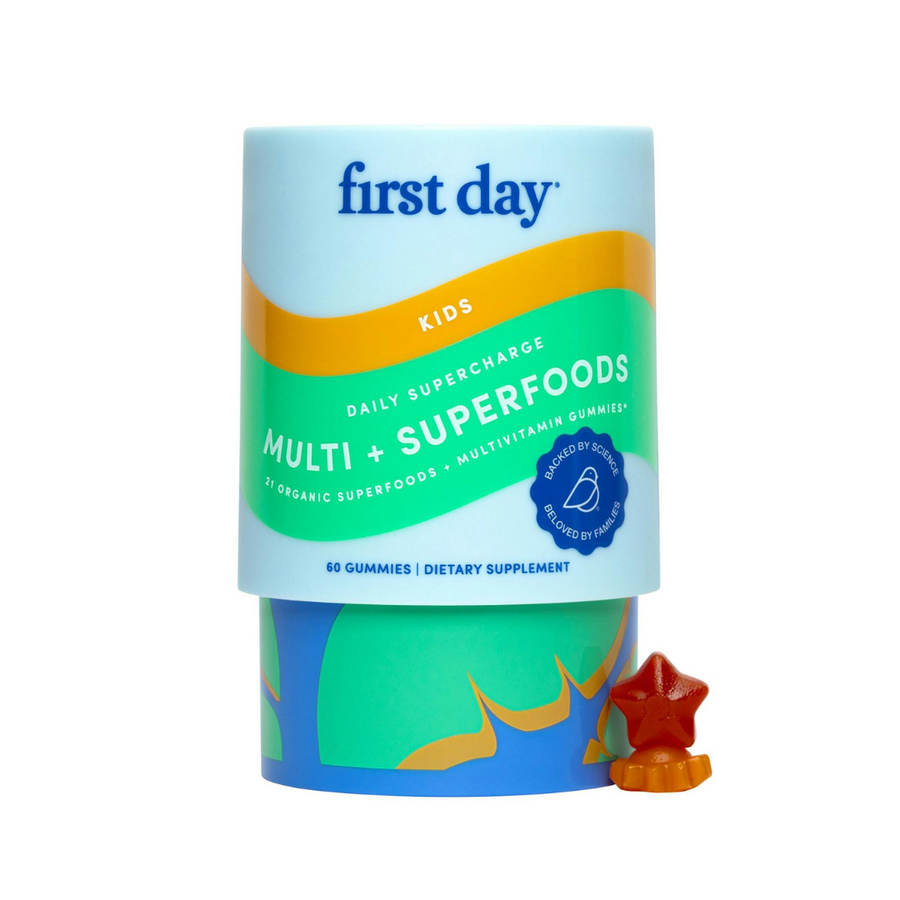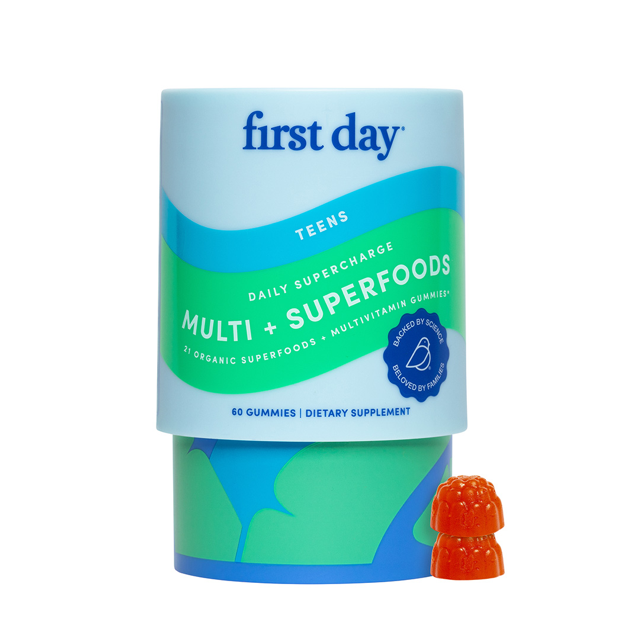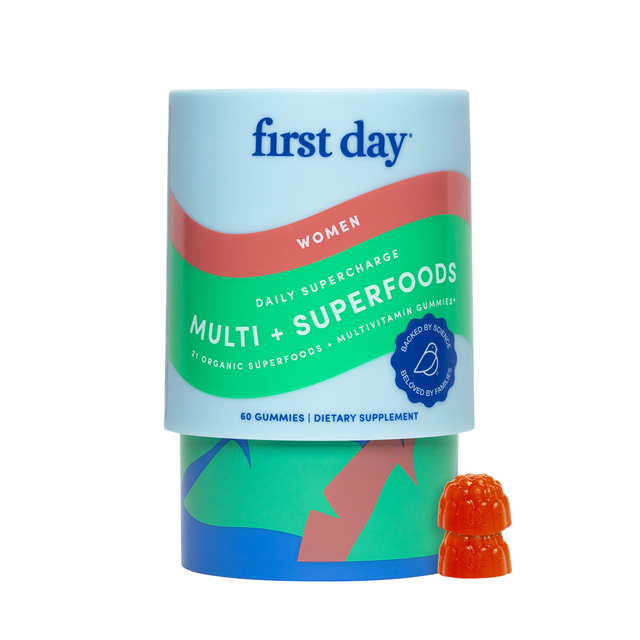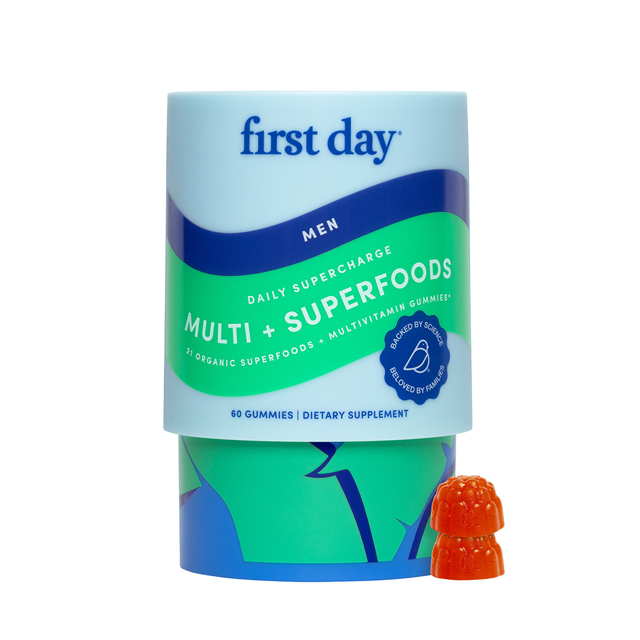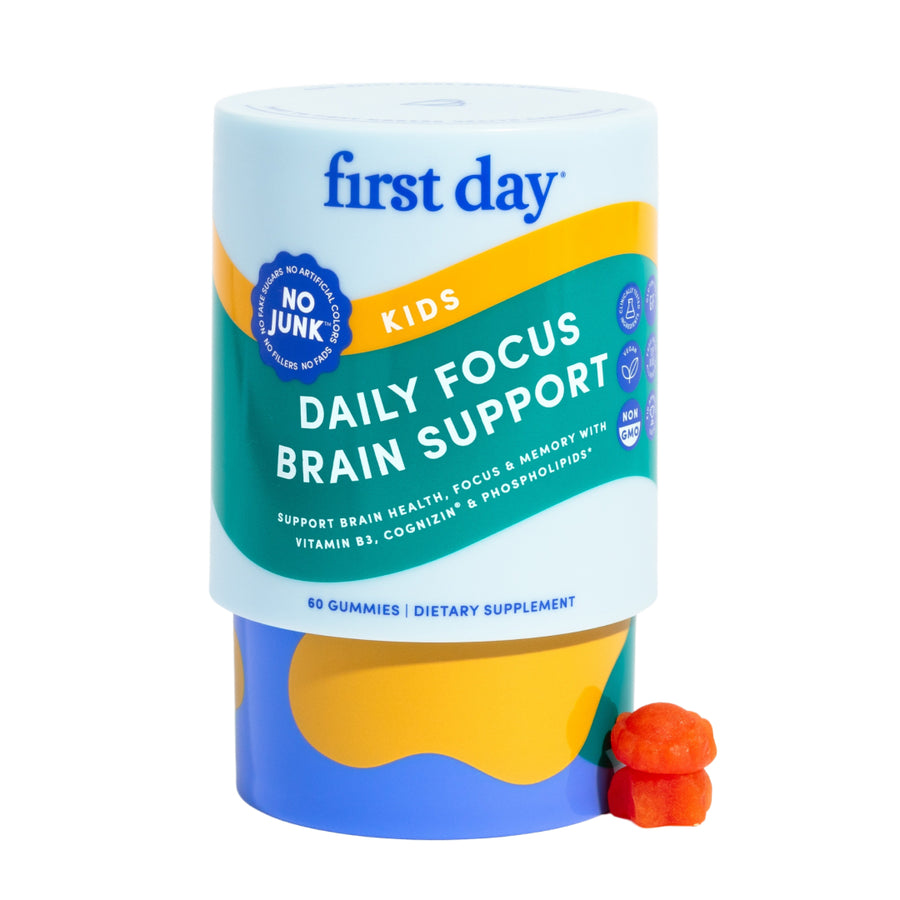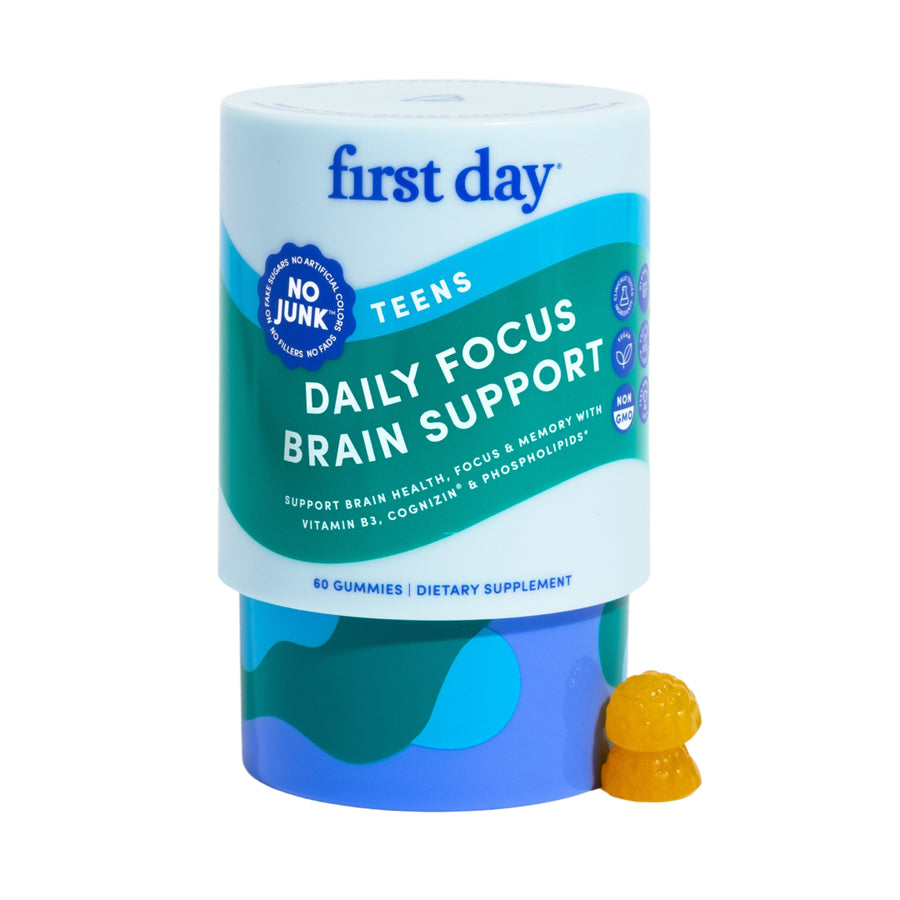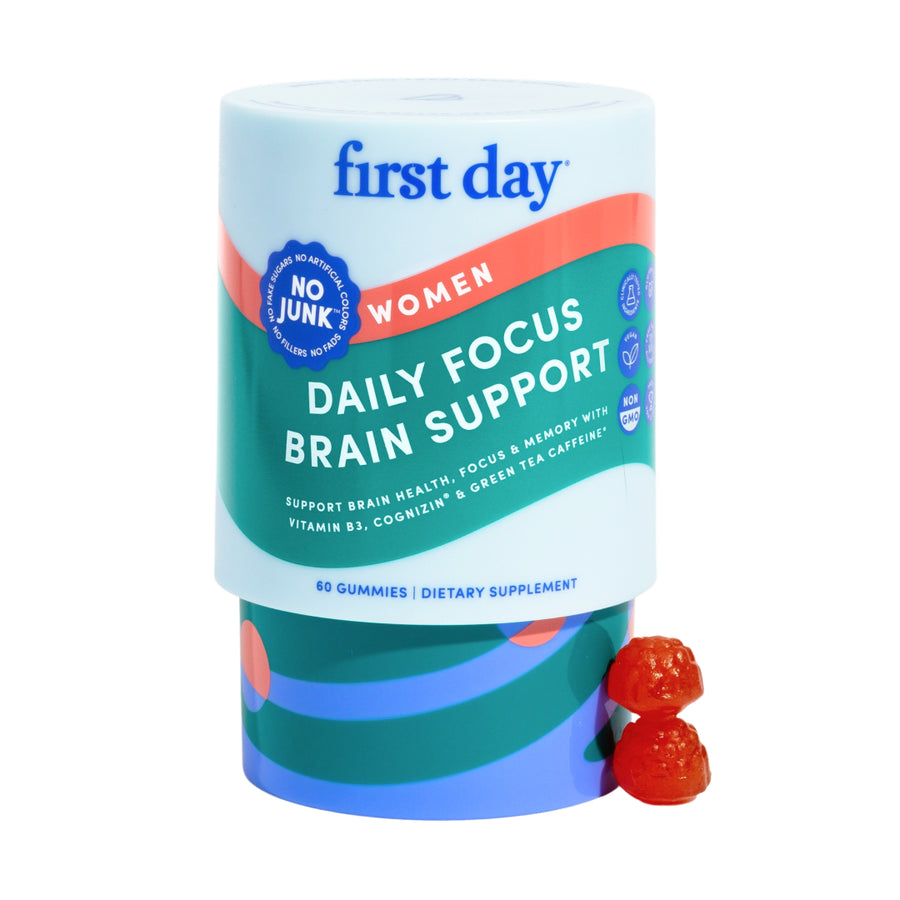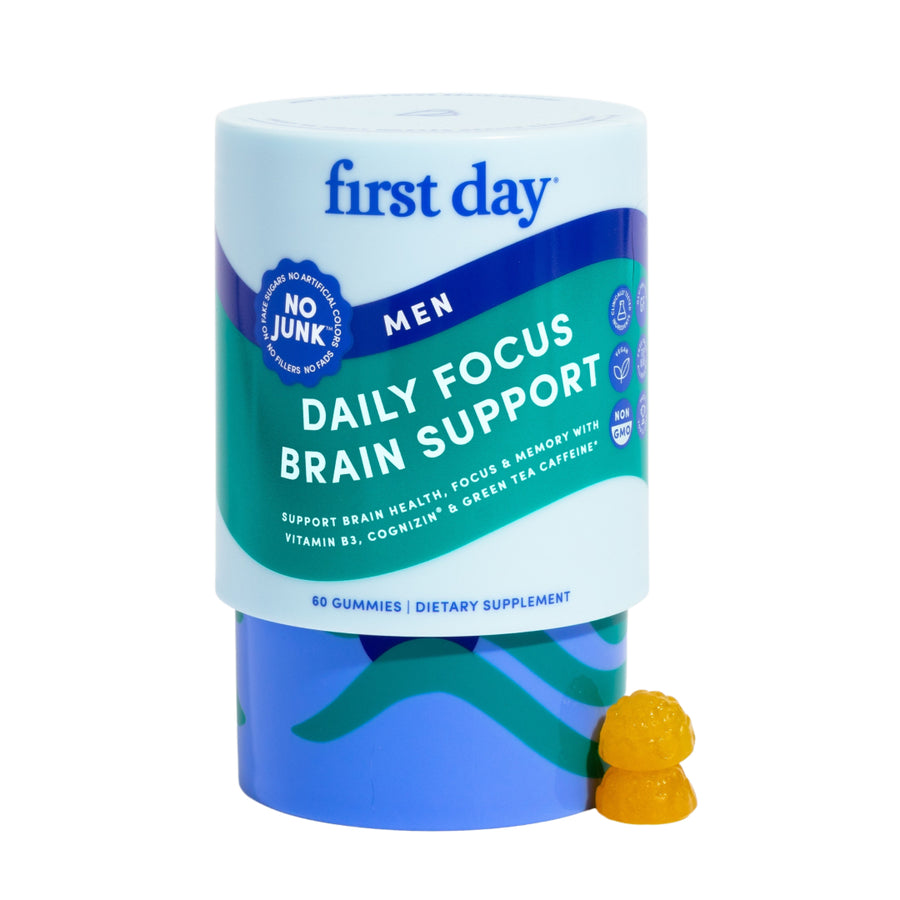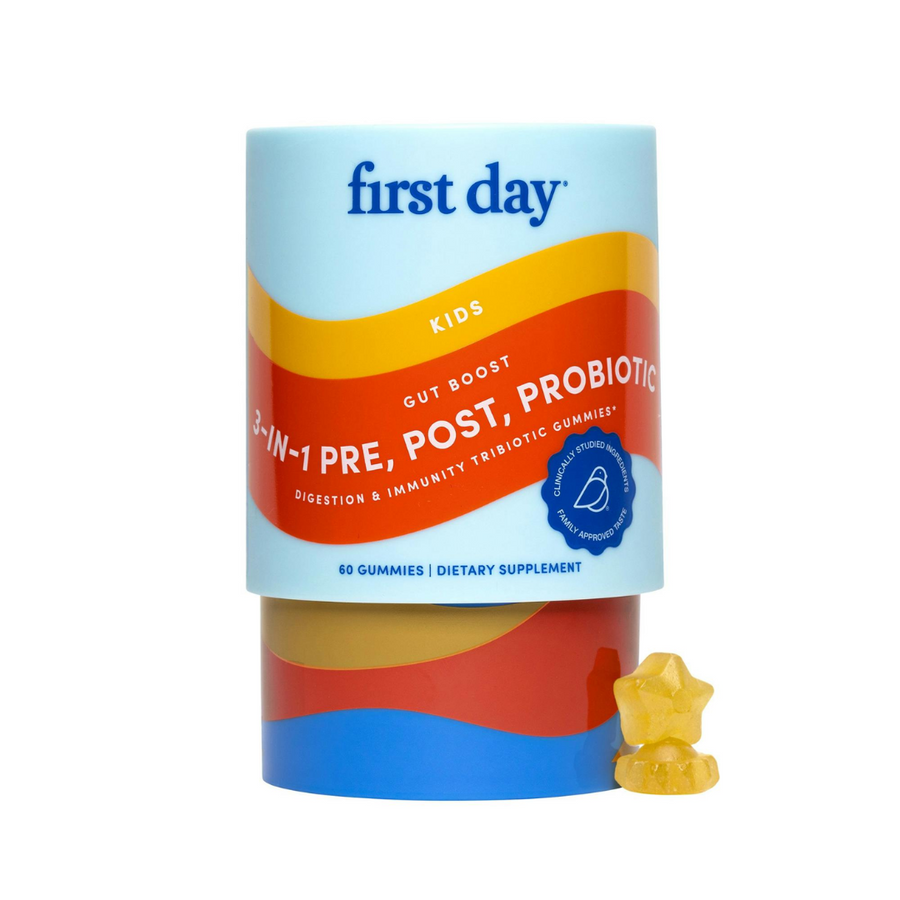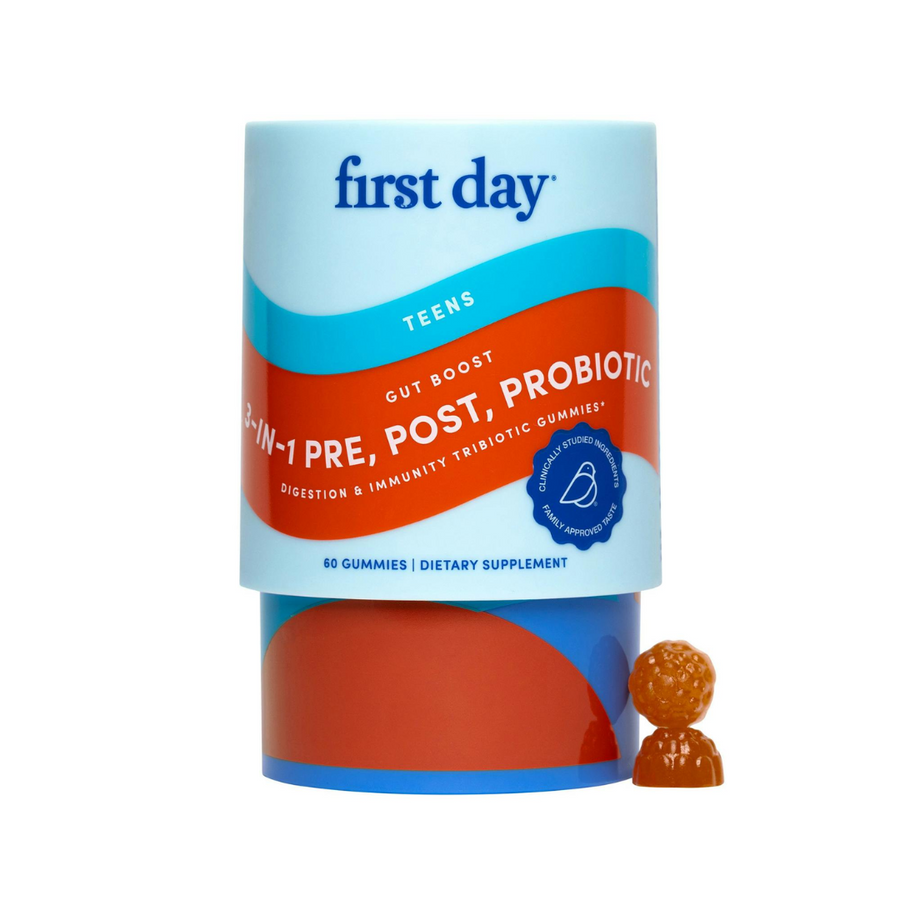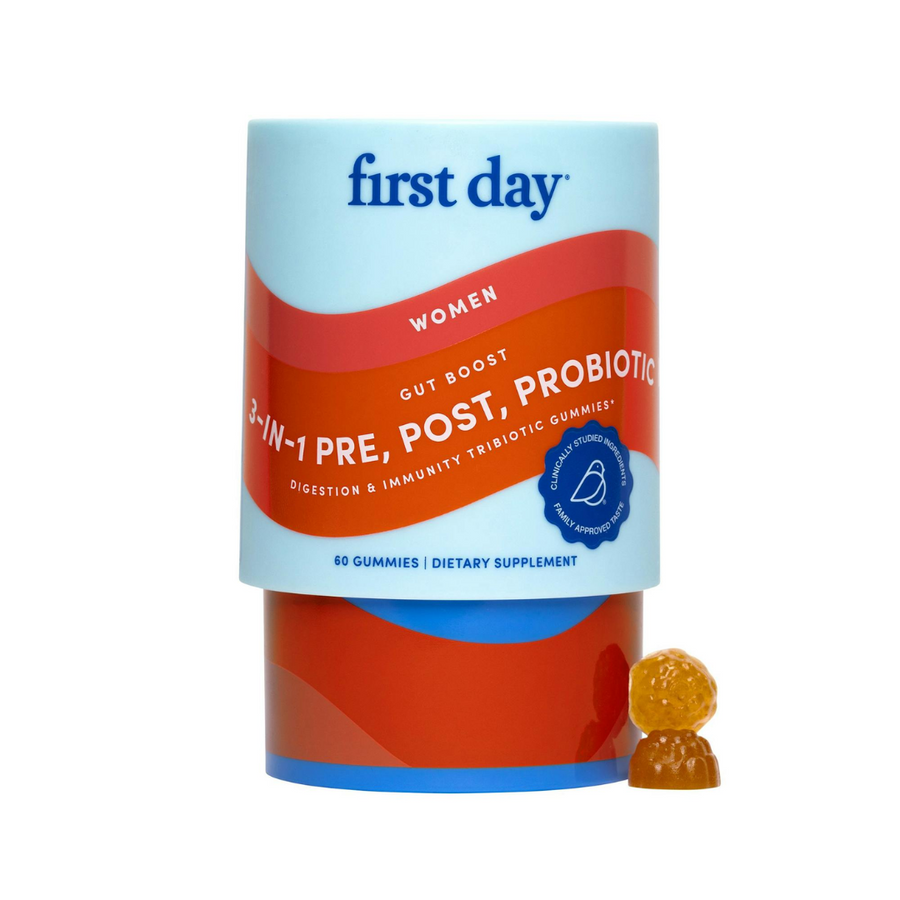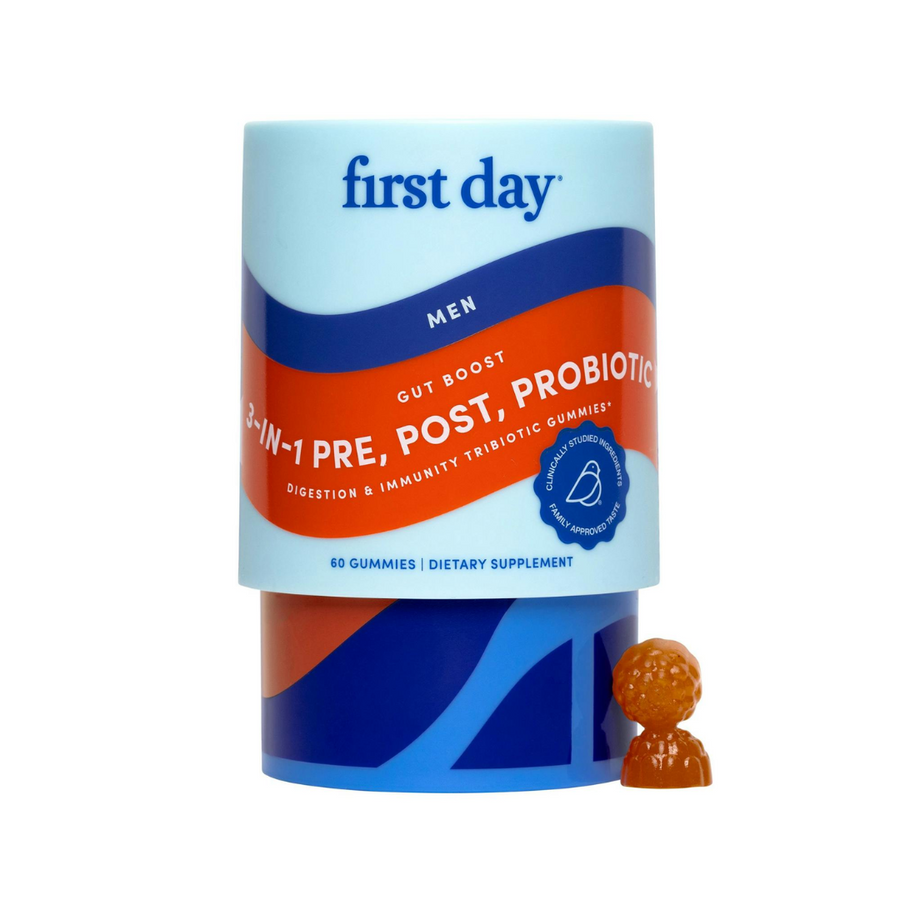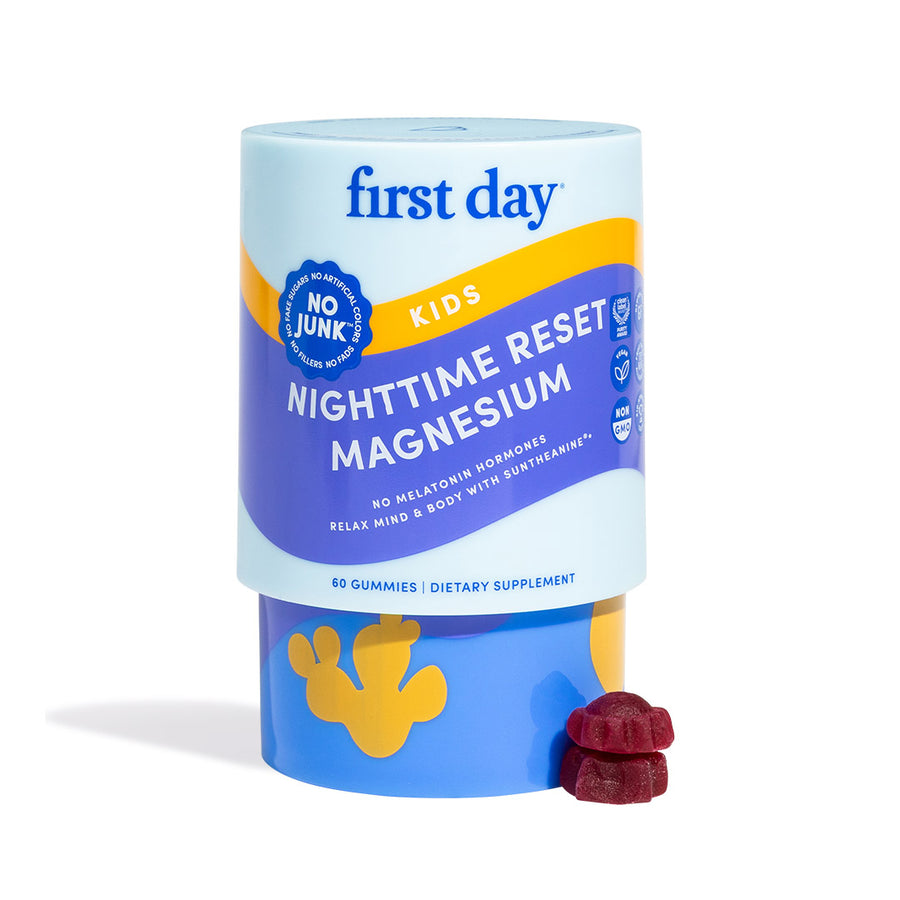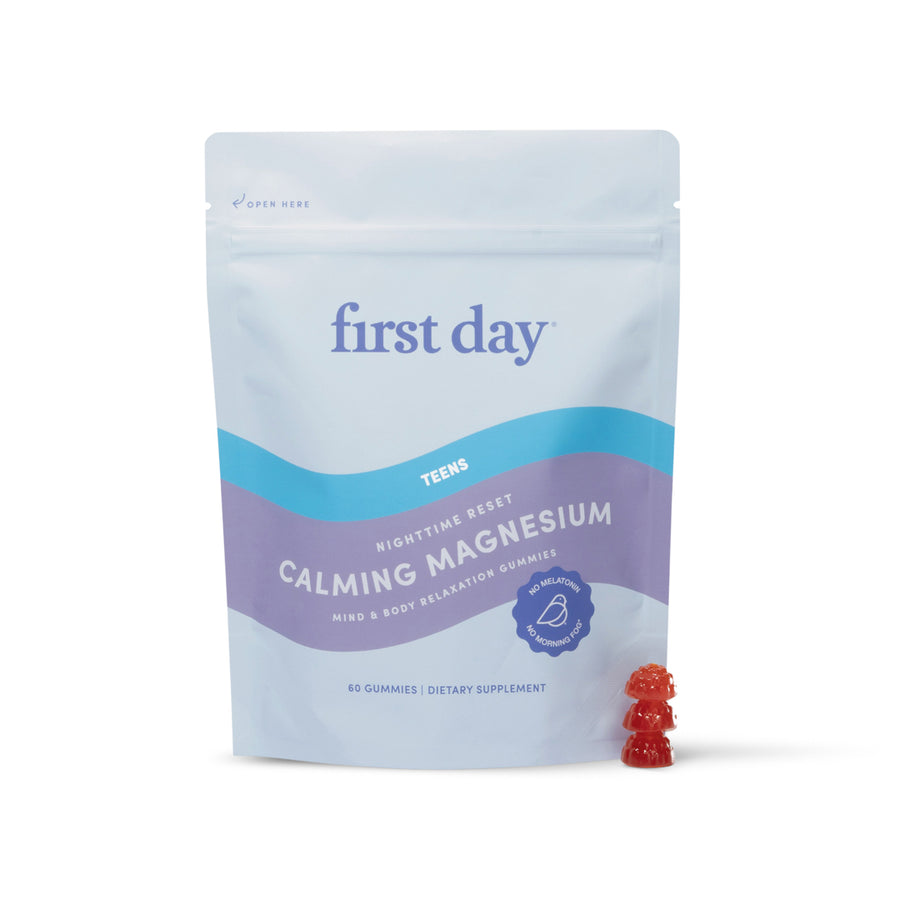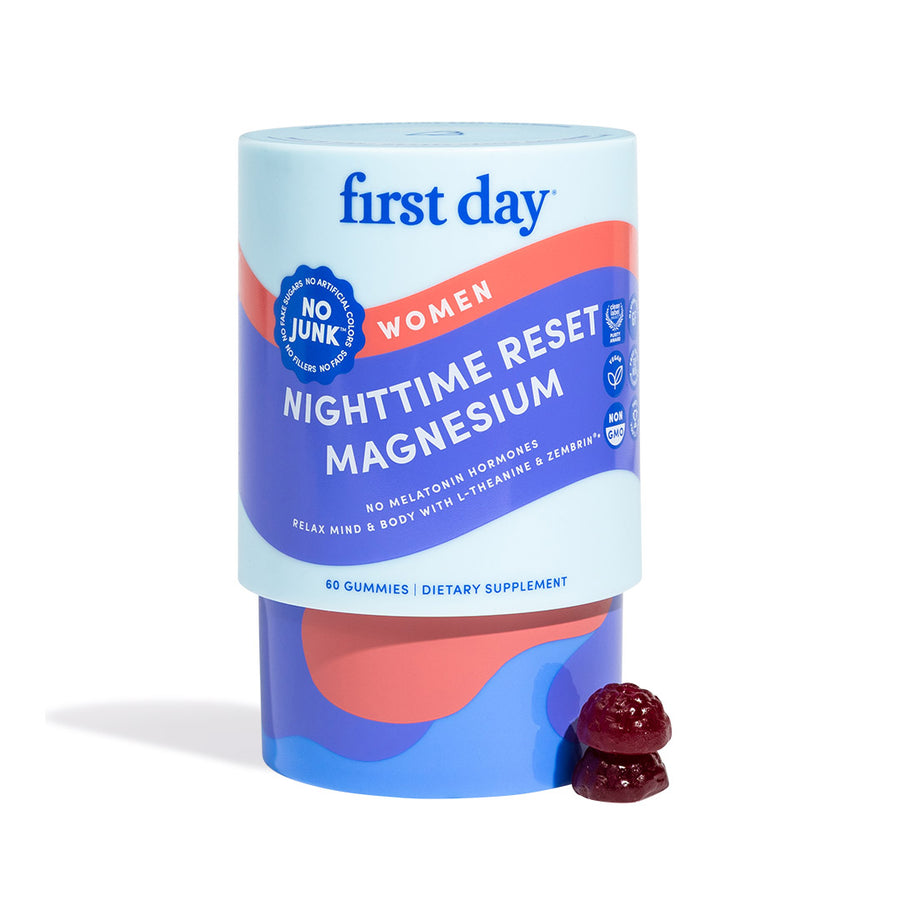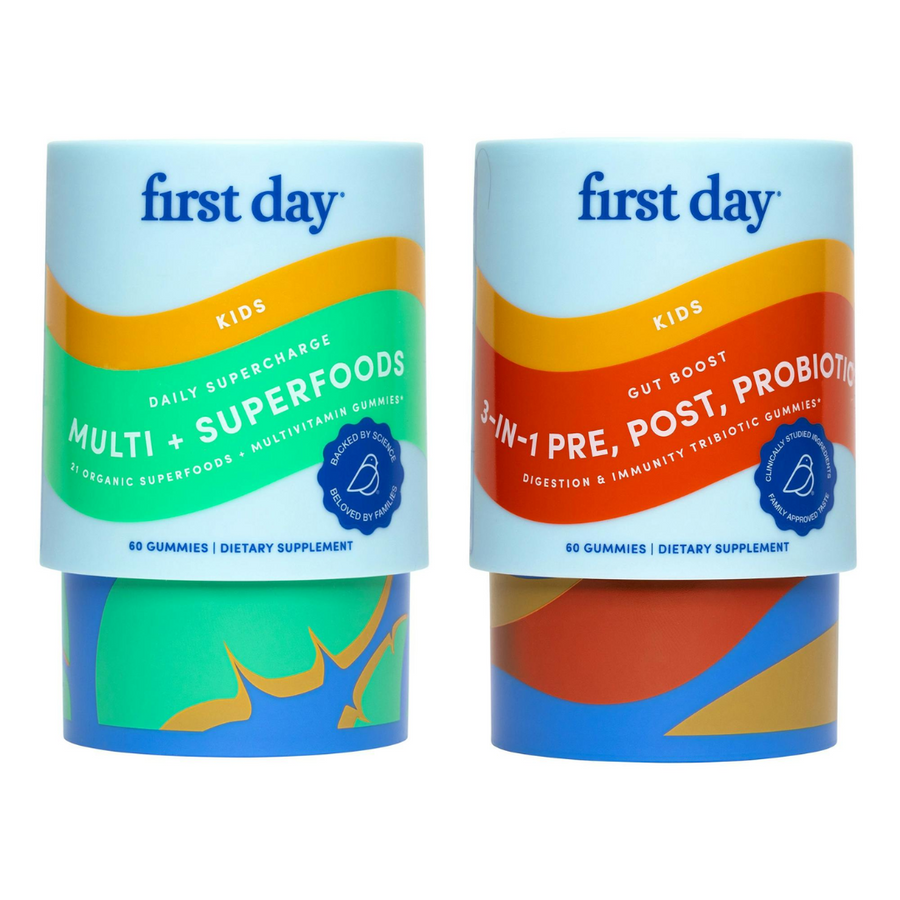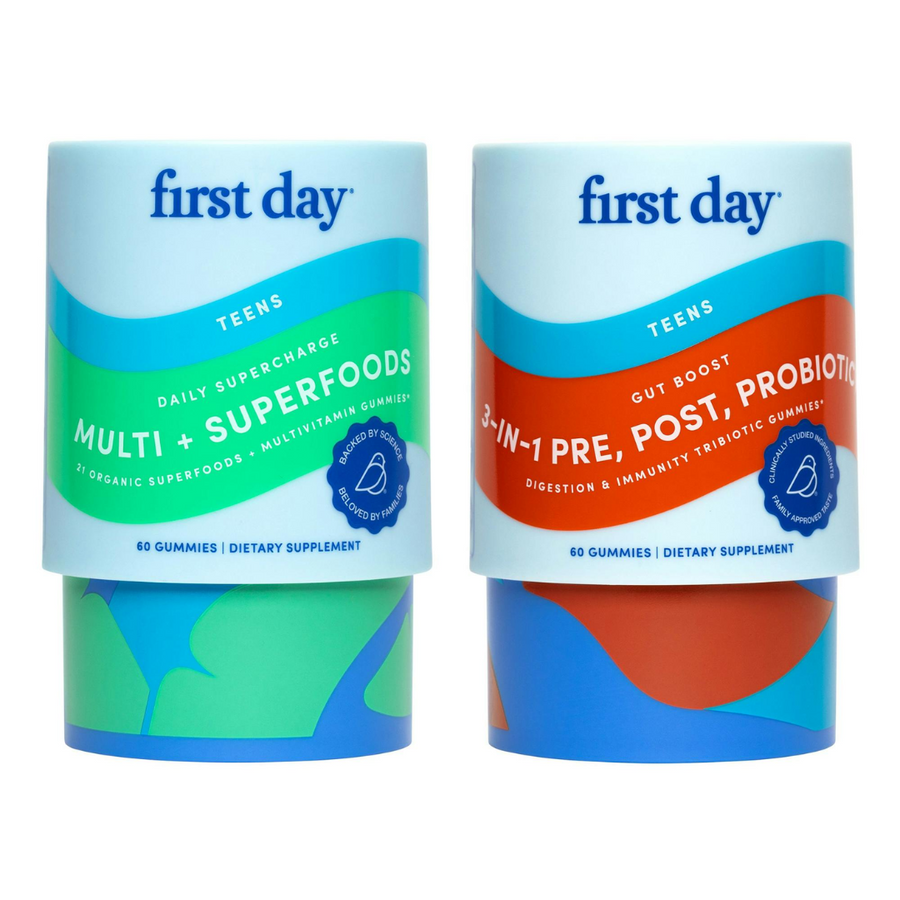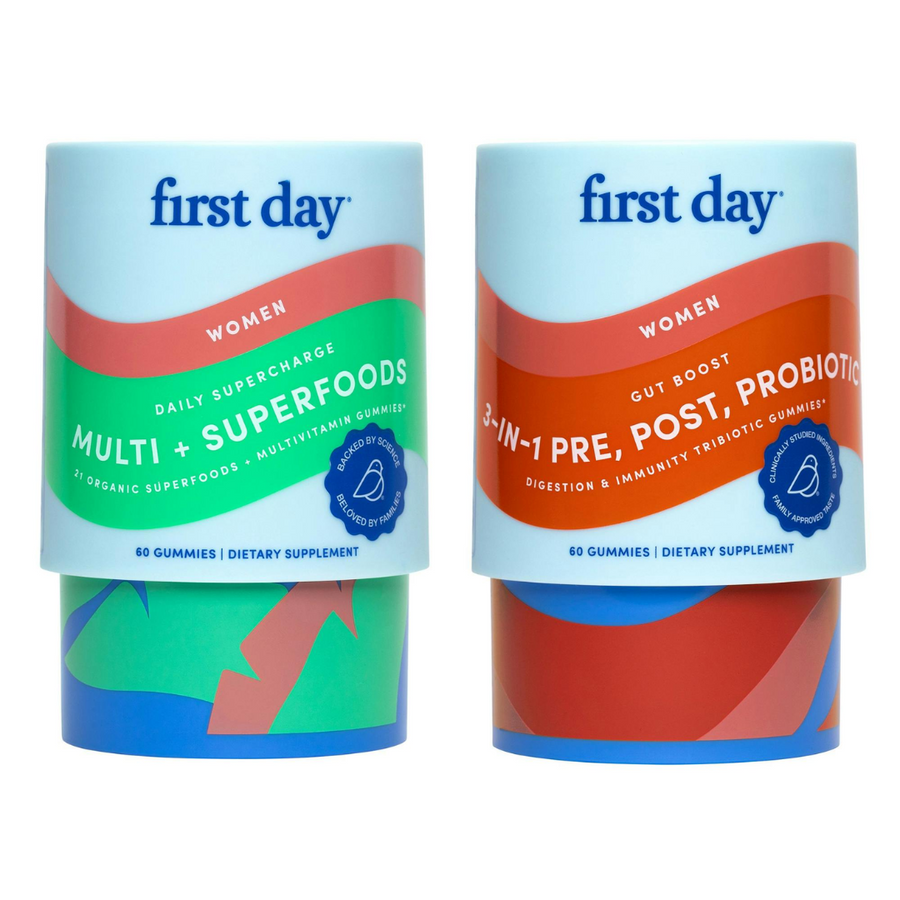Who doesn't love a tasty, chewable treat that's enticingly colorful and promises a health boost?
Yes, this is the beautiful world of gummy vitamins!
They're multivitamins crafted into delicious, candy-like gummies, offering essential nutrients in an easy-to-swallow form. So it's no surprise that kids (and, let's be honest, adults too) are quick to trade the traditional bad-tasting pill for these fun and yummy alternatives.
But do gummy vitamins work as well as their traditional counterparts?
According to a report by Transparency Market Research, the global gummy vitamins market is predicted to reach a valuation of USD 5.8 billion by 2029, up from USD 3.1 billion in 2018.
That's quite a jump!
This astonishing growth only shows the skyrocketing popularity of gummy vitamins among people. While we should all jump on the yummy gummies love train, let's first take a deeper dive into what these tasty supplements are all about.
Hang tight, folks—it's time to unveil the truth: do gummy vitamins work?
Gummy Vitamins: How They Came to Be
Gummy vitamins started as a brilliant way to make essential nutrients easier for the average person to take.
The first gummy vitamin was created in the late 1990s and has since become a household name, with various shapes, colors, and flavors.
But it wasn't until recent years that gummy vitamins took center stage, with a significant increase in popularity among kids and adults too.
Why the sudden shift? Well, it's mainly because of the idea that gummy vitamins are not only nutritious but also tasty and convenient.
The Absorption Process: An Easy-to-Digest Tale
So, how do gummy vitamins work their magic?
Our body, the fantastic machine that it is, absorbs nutrients from food through a complex digestive process.
But guess what? The same process applies to our colorful gummy comrades too!
Once you pop a gummy vitamin in your mouth and start chewing, the digestion process begins. Your saliva contains proteins called enzymes that start breaking down the gummy, even as you enjoy its sweet, fruity taste. As you swallow, the (now not-so-gummy) gummy vitamin travels down your esophagus and lands in your stomach.
Here, stomach acids take over the job of breaking it down further, revealing the hidden treasures - the vitamins and minerals. These goodies are then absorbed by the small intestine, where they enter the bloodstream to be delivered throughout your body. So, in essence, gummy vitamins work the same way other foods do!
But remember, the absorption of these nutrients also depends on several factors such as the type of vitamins and the nutrients in the vitamin (and do they work with or against each other), and whether they're consumed with food.
Ingredient Breakdown: A Closer Look at What's Inside Your Gummy Vitamins
When it comes to gummy multivitamins, let's get down to the nitty-gritty. There are four main components we'll dive into.
Pectin vs. Gelatin: The Gummy Base
Your gummy vitamin's squishy texture comes from one of two things: pectin or gelatin.
Gelatin is an animal-derived product, sourced mainly from collagen taken from boiled skin, tendons, and ligaments of cows or pigs. It's a commonly used gelling agent, but not suitable for vegetarians or those with dietary restrictions.
Also, besides being unsuitable for vegetarians or those with dietary restrictions, gelatin may also cause allergic reactions in some individuals. Symptoms of a gelatin allergy can range from mild to severe and may include hives, itchiness, difficulty breathing, and in extreme cases, anaphylaxis.
Furthermore, gelatin as an ingredient in gummy vitamins has its drawbacks. It’s not stable at high temperatures and can become messy, turning into a gooey, unappetizing mass when exposed to heat. So, if you're storing gummy vitamins in a hot environment or carrying them around on a warm day, you might end up with a sticky situation on your hands.
But good news!
If you're worried about allergic reactions or ending up with a gooey, unappetizing mass of vitamins - you can breathe easy. With pectin-based gummies, these troubles are out the window.
Pectin, a natural substance found in fruit peels, is allergy-free. Plus, it holds up much better against heat, so you won't get a sticky, melted mess even on a hot summer day. So, you can enjoy your delicious, nutritious, and mess-free gummy vitamins without a care in the world!
With First Day, we're raising the gummy game! Our gummy multivitamins are purely plant-powered, made with a whopping 12 organic fruits and vegetables. And guess what? We've also nixed the gelatin since our gummies are pectin-based, keeping them vegan-friendly and allergy-free!
Discover The Yummy Joy Of First Day Gummy Multivitamins Today!
Sugar: The Good, the Bad, and the Ugly
We've all been there - trapped by the sweet temptation of sugar-coated gummy vitamins.
But why do brands sprinkle sugar on their gummy vitamins, you wonder?
Well, sugar is mainly used to make the gummies taste better, especially for kids who might be picky eaters and hate the natural taste of vitamins and minerals.
But, this sweetness comes at a price.
Eating too much sugar is linked to various health issues. For instance, a study published in the Journal of the American Medical Association linked high sugar intake with an increased risk of obesity in kids. So, while that extra sugar might make your gummies taste heavenly, it's certainly not doing your health any favors.
Luckily, First Day has your back. Our gummy vitamins contain 80% less sugar than other leading brands. We believe in creating the perfect balance between taste and health. So you can get that sweet kick without the guilt trip!
Another thing we should mention is that some companies try to market themselves as “sugar-free”, but use artificial sweeteners instead. Here's the thing: artificial sweeteners have their own concerns. A study found a link between artificial sweeteners and obesity , high blood pressure, and diabetes.
To keep you safe from these issues, at First Day we stick to all-natural, organic cane sugar. It's less processed than white sugar and keeps more of the nutrients from sugar cane. And the best part? It's sweet without any harmful additives. So with our gummy vitamins, you get a tasty treat that's good for you!
Discover The Yummy Joy Of First Day Gummy Multivitamins Today!
Vitamins and Minerals: The Nutritious Nuggets

The real stars of the show in any gummy vitamin are, of course, the vitamins and minerals themselves. While each brand may have its own unique blend of nutrients, some of the most commonly found vitamins and minerals in gummy vitamins include:
- Vitamin A: Helps maintain healthy vision, skin, and immune function
- Vitamin C: A powerful antioxidant that helps boost the immune system, heal wounds, and support healthy skin.
- Vitamin D: Essential for absorption of calcium and maintenance of strong bones.
- B Vitamins: A group of nutrients that play a role in energy production and healthy brain function.
Think of gummy multivitamins as a yummy treat packed with a whole cocktail of nutrients!
But here's the catch, we have to make sure they contain the right nutrients, and in the right amounts, according to your Recommended Daily Allowance (RDA).
You might be wondering, "What's this RDA you're talking about?"
Well, in simple terms, RDA is the average daily level of intake that is enough to meet the nutrient requirements of nearly all (97%-98%) healthy people.
With First Day, we've got all of this covered! Our gummy multivitamins not only taste amazing but are also meticulously formulated to ensure you're getting the nutrients you need, in the right amounts, and in the most potent form.
So, go ahead and enjoy your nutrient cocktail!
Discover The Yummy Joy Of First Day Gummy Multivitamins Today!
Gummy Vitamins vs. Traditional Vitamins
So, you might wonder, do gummy vitamins work as well as traditional vitamins? The answer is yes…and no.
Taste: Gummy vs. Traditional Vitamins
When it comes to flavor, there's no contest. Traditional vitamins, whether in pill, capsule, or liquid form, can have an off-putting taste. On the other hand, gummy vitamins are like mini treats, bursting with delicious flavors. So, in the taste department, gummy vitamins definitely win this round!
Digestion: A Tale of Two Vitamins
Gummy vitamins have an edge here, too. Traditional vitamins can sometimes be hard to swallow and might upset your stomach, especially if taken without food. Gummy vitamins, on the other hand, are easy to chew and gentler on the stomach. Plus, they can be taken with or without food, making them a more flexible option.
Convenience: The Ease of Use
Traditional vitamins usually require water or some form of liquid to swallow, and you might need to cut them into smaller pieces if they're too large. Gummy vitamins need none of that. They're ready to chew straight from the bottle, making them super handy on the go.
Nutrient Absorption: Body's Reception
Both gummy and traditional vitamins are designed to deliver essential nutrients to your body. However, the body may absorb nutrients from gummy vitamins a bit more easily because they're chewed and broken down in the mouth before even reaching the stomach.
Sugar Content: The Sweet Dilemma
Traditional vitamins typically don't contain sugar, while many gummy vitamins do. The flip side is that some gummy vitamins, like ours at First Day, use less sugar and natural sweeteners to keep things healthy. However, it's worth checking the label to make sure you're not consuming excess sugar with your vitamins.
Busting the Gummy Vitamin Myths
Let's set the record straight, shall we?
Myth 1: Gummy Vitamins Are Just Candy
This is a popular misconception we come across often. Yes, gummy vitamins taste great, and yes, they have that candy-like texture, but that doesn't diminish their nutritional value. The truth is that gummy vitamins are packed with essential vitamins and minerals needed to fill in nutritional gaps, just like their conventional counterparts. They just deliver these nutrients in a tastier package!
Myth 2: Gummy Vitamins Aren't as Effective as Traditional Vitamins
Many people believe that because gummy vitamins are easier to ingest and taste better, they must be less effective. But that's just not true. While the body's absorption rate can vary depending on many factors, the essential nutrients in gummy vitamins are just as bioavailable and potent as those in traditional vitamins. Remember, it's not about how 'serious' the vitamin looks or tastes; it's about the nutrients it delivers to your body!
Myth 3: You Can't Overdose on Gummy Vitamins
Because they taste so good, it can be tempting to pop more than the recommended dosage. But here's a reality check: just like with any supplement, taking more than the recommended daily amount can lead to negative health effects. This is called hypervitaminosis, also called vitamin overload and it can cause harmful effects to the body. So it's not to be taken lightly. So, just because they taste like a treat doesn't mean you should eat them like one! Always follow the dosage instructions on the package.
Target Demographics
It's not just the kids who get to have all the fun. Yes, you read that right!
At First Day, we believe that everyone deserves a tasty and healthy treat. This is why we offer both Kids Multivitamins, Teens Multivitamins and Men and Women Multivitamins.
Picture this: It's a busy morning, you're hustling to get your kids and teens ready for school, and suddenly you remember - vitamins! You reach for the First Day Kids Multivitamins. They're gummy, they're yummy, and they're packed with all the nutrients your little one needs.
But what about you?
Well, we've got you covered too! Our Women's Multivitamins and Men's Multivitamins are just as delicious and nutritious. They're perfect for the grown-ups who want to join in on the gummy fun while also taking care of their health. They say, 'Adulting is hard', but at First Day, we make it a tad bit easier (and tastier)!
So, whether you're a kid or a kid at heart, First Day is here to add a little sweetness to your daily health regimen. After all, who said vitamins have to be boring? Not us!
Discover The Yummy Joy Of First Day Gummy Multivitamins Today!
Final Thoughts: Do Gummy Vitamins Work?
The debate of "Do gummy vitamins work" has been laid to rest.
Whether for kids or adults, gummy vitamins are an effective, enjoyable, and convenient way to get the nutrients your body needs — without any of the boring. They're tasty, easy to take, and just as potent as their traditional counterparts.
With First Day, you get all the benefits of a multivitamin in a fun gummy format, and our careful formulation ensures that you're not loading up on unnecessary sugars or artificial ingredients.
So why wait?
Try First Day multivitamins today and experience the perfect blend of health and happiness! After all, shouldn't taking care of your health be a delight, not a chore?
Discover The Yummy Joy Of First Day Gummy Multivitamins Today!
References:
Gummy Vitamins Market is likely to reach US$ 5.8 Bn in 2029. (n.d.). Www.transparencymarketresearch.com. https://www.transparencymarketresearch.com/gummy-vitamins-market.html
Straus, M. (2022). From good to great: Gummy supplements are getting a whole new look. Nutritional Outlook, 25(9). https://www.nutritionaloutlook.com/view/from-good-to-great-gummy-supplements-are-getting-a-whole-new-look#:~:text=Hero%20Nutritionals%20(Santa%20Ana%2C%20CA
Services, D. of H. & H. (2014, August 31). Digestive system. Www.betterhealth.vic.gov.au. https://www.betterhealth.vic.gov.au/health/conditionsandtreatments/digestive-system#:~:text=The%20digestive%20system%20converts%20the
The Processing of Gelatin. (2012, June 4). Saving Earth | Encyclopedia Britannica. https://www.britannica.com/explore/savingearth/the-processing-of-gelatin#:~:text=Gelatin%20is%20made%20from%20decaying
Gelatin allergy. (2020). Aaaai.org. https://www.aaaai.org/allergist-resources/ask-the-expert/answers/old-ask-the-experts/gelatin-allergy
Pectin - an overview | ScienceDirect Topics. (n.d.). Www.sciencedirect.com. https://www.sciencedirect.com/topics/neuroscience/pectin#:~:text=Pectin%20is%20extracted%20from%20apples
Magriplis, E., Michas, G., Petridi, E., Chrousos, G. P., Roma, E., Benetou, V., Cholopoulos, N., Micha, R., Panagiotakos, D., & Zampelas, A. (2021). Dietary Sugar Intake and Its Association with Obesity in Children and Adolescents. Children, 8(8), 676. https://doi.org/10.3390/children8080676
Singh, S., Kohli, A., Trivedi, S., Sai Gautham Kanagala, F. N. U. Anamika, Garg, N., Patel, M. A., Ripudaman Singh Munjal, & Jain, R. (2023). The contentious relationship between artificial sweeteners and cardiovascular health. 35(1). https://doi.org/10.1186/s43162-023-00232-1
Office of Dietary Supplements - Vitamin A and Carotenoids. (n.d.). Ods.od.nih.gov. https://ods.od.nih.gov/factsheets/VitaminA-Consumer/#:~:text=professional%20fact%20sheet.-
NHS. (2020, August 3). Vitamin C - Vitamins and minerals. NHS. https://www.nhs.uk/conditions/vitamins-and-minerals/vitamin-c/
National Institutes of Health. (2023, September 18). Vitamin D. Nih.gov. https://ods.od.nih.gov/factsheets/VitaminD-HealthProfessional/
Harvard School of Public Health. (2019, June 4). B Vitamins. The Nutrition Source. https://www.hsph.harvard.edu/nutritionsource/vitamins/vitamin-b/
Allowances, N. R. C. (US) S. on the T. E. of the R. D. (1989). Definition and Applications. In www.ncbi.nlm.nih.gov. National Academies Press (US). https://www.ncbi.nlm.nih.gov/books/NBK234926/#:~:text=Recommended%20Dietary%20Allowances%20(RDAs)%20are
Hashash, J. G., Proksell, S., Kuan, S.-F., & Behari, J. (2013). Iron Pill–Induced Gastritis. ACG Case Reports Journal, 1(1), 13–15. https://doi.org/10.14309/crj.2013.7
Hypervitaminosis - an overview | ScienceDirect Topics. (n.d.). Www.sciencedirect.com. https://www.sciencedirect.com/topics/agricultural-and-biological-sciences/hypervitaminosis#:~:text=Hypervitaminosis%20occurs%20when%20the%20storage
